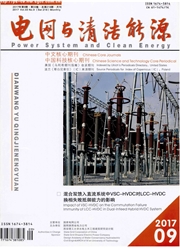

 中文摘要:
中文摘要:
由于能量消耗及CO2排放的持续增长,人们开发出建筑自动管理系统以在保证室内舒适的同时提升建筑中的能量效率。模糊逻辑是一种开发该相应控制系统的有力工具,为解决建筑能耗和舒适度高效管理问题,文中采用模糊逻辑以优化办公楼的功能及能耗。通过已有的模型模拟不同的房间配置情况并进行比较,以评估在模糊控制系统中房间变量的影响。在同样的日光照射输入下,不同的房间配置需要不同的管理模式来控制遮阳系统和照明系统,从而达到舒适和节能之间的良好平衡。
 英文摘要:
英文摘要:
With the constant increase of energy consump- tion and carbon dioxide emission, building automatic manage- ment systems have been developed to improve the energy effi- ciency of buildings while maintain indoor comfort. With the de- velopment of the hardware, the demand for corresponding con- trol system solutions to enhance intelligent building manage- ment is also on the rise. Under this framework, fuzzy logic is a potential tool to develop the corresponding control system. In this paper, fuzzy logic is used to optimize the function and the energy consumption of an office building. We have modeled a different house price configuration using existing models and compared the results to evaluate the effects of room variables (window structures, glass properties, and wall reflections)in a fuzzy control system. It is worth noting that, with the same day- light input, different room configurations require different management modes to control the sunshade system and the lighting system to achieve a good balance between comfort and energy efficiency.
 同期刊论文项目
同期刊论文项目
 同项目期刊论文
同项目期刊论文
 期刊信息
期刊信息
